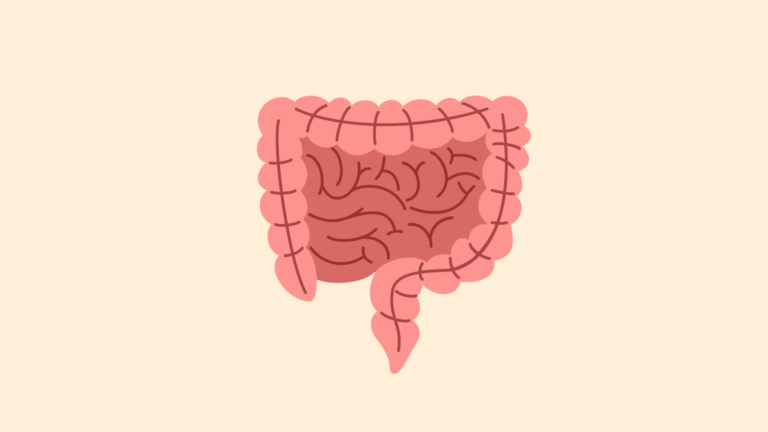If you’re diagnosed with small intestinal bacterial overgrowth (SIBO), don’t panic.
Don’t feel discouraged, or as though you are “doomed”… instead, be grateful that you have an answer to your digestive symptoms and use the information to take informed action.
This condition is fairly common, and it’s often easy to treat once you’ve gotten a proper diagnosis. In this blog, we’ll go over the basics of SIBO, including how it’s diagnosed and what treatments are available. We’ll also share some tips for managing your diet while your symptoms improve.
What is SIBO?
SIBO= Small intestinal bacterial overgrowth
The large intestine is where most of your gut bacteria is housed. But when things malfunction, bacteria, fungus, etc. can “leak” into the small intestine causing small intestinal bacterial overgrowth.
This can cause symptoms of bloating, fatigue, constipation, diarrhea, acid reflux, “food sensitivities”, etc.
Our past client Karla came to us struggling with relapsing SIBO and was at her wits end 🤯
She was sick of going back and forth to the GI doc getting another prescription for Xifaxan and a low fodmap diet handout
She would feel amazing on SIBO treatment but then 3 weeks later the symptoms would start coming right back and she was getting so frustrated 🙇♀️
Why was this happening?
If you hear 1 thing what I want you to know is that SIBO is a sign of a greater issue (like slow gut motility, bacterial imbalances in the large intestine, poor digestion, stress, etc)
We often work with clients that have had multiple rounds of SIBO treatment and the symptoms keep coming back.
Don’t jump into an elimination diet too quickly.
Elimination diets are often one of the first things people do when they begin to experience digestive symptoms like SIBO. They think “oh, I didn’t feel good after eating that so I’m going to cut it out.” The thing is, elimination diets can actually have a negative effect on your digestion if you try them on your own before talking to your doctor, dietitian or allergist first. If you’ve never been diagnosed with food allergies before and you suddenly decide to drastically change your diet based on what’s worked for other people, it’s likely that the elimination diet won’t work at all because there might be something else going on in addition to SIBO that could also be causing digestive issues. Most individuals are quick to blame food for their symptoms, but the reality is it is likely much deeper than that.
Instead of focusing on “killing” the SIBO with treatments and elimination diets, I would start by researching your unique root cause. This could be gut motility, digestive deficiencies, stress, hypothyroidism, etc.)
When you determine the actual root cause of your SIBO diagnosis, you’re able to properly treat it and find long-term relief.
SIBO can be a tricky thing to treat, and there’s no one-size-fits-all approach.
But if you’re diagnosed and have already tried the dietary, with no real solution, then you can move on to some other steps. The foundational habits below will help to support your gut long term WHILE you are working on addressing your unique root causes.
- Start sleeping 8-9 hours per night. Rest is critical for the gut to heal
- Focus on meal hygiene and the migrating motor complex. Chew your food well, space meals 3-4 hours apart, and take a moment to take some deep breaths and relax before meals.
- Add in 1 stress reducing activity each day. This helps get your body into a “rest and digest” state and will support your nervous system.
- Stop cutting random foods out. Eat the widest variety of foods with the least amount of symptoms to nourish the GOOD gut bacteria, and not starve them out.
- Get your bowels moving daily if they aren’t already. This is one of the #1 things that contributes to a SIBO relapse.
- Hydrate like a pro. Try for 80-100oz of water per day + minerals to promote optimal mineral balance and better bowel movements.
Remember: SIBO is a symptom of a greater problem! For full relief, address the root cause.
You can take our “Why Am I Bloated?” Quiz to help you start to identify your root cause.
And if you have chronic GI symptoms that have caused you to keep “failing” SIBO treatment, the gutTogether program is for you!
The gutTogether program is an individual program for women just like you who want to identify the true sources of their symptoms and find relief by addressing the root causes via nutrition, lifestyle and supplementation
Our team of experts will help you identify your root causes and create a custom plan to help you heal









